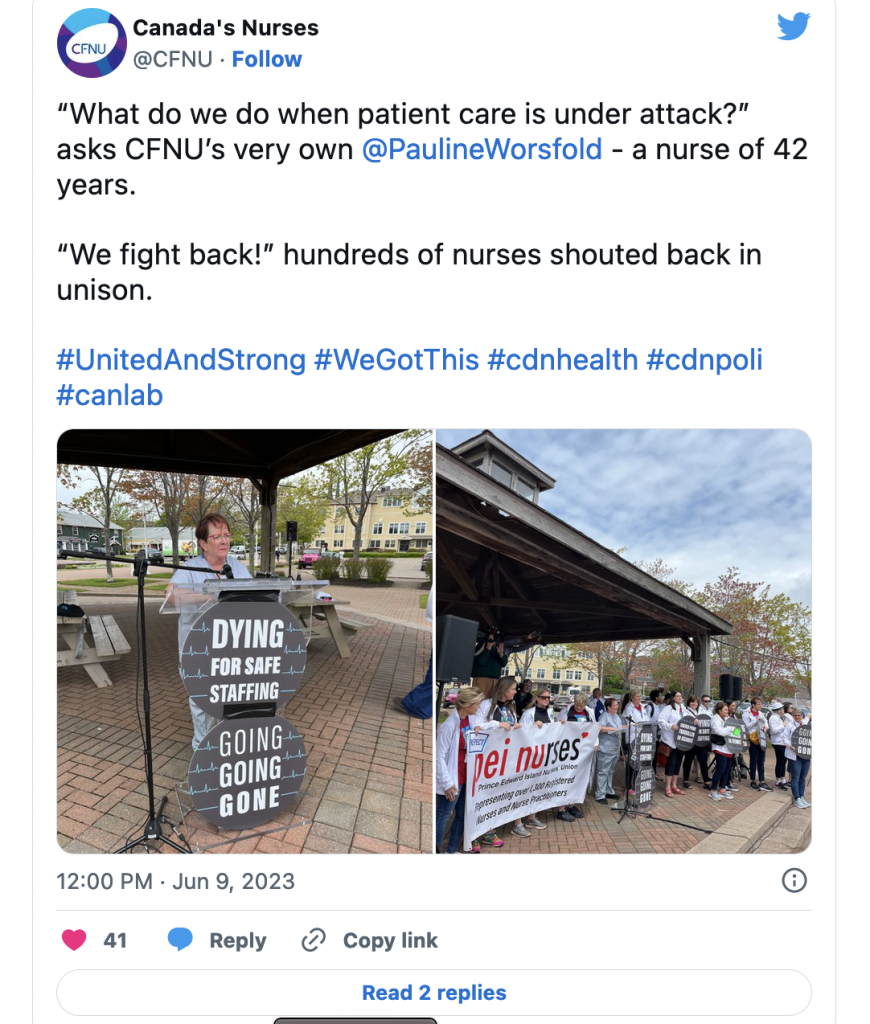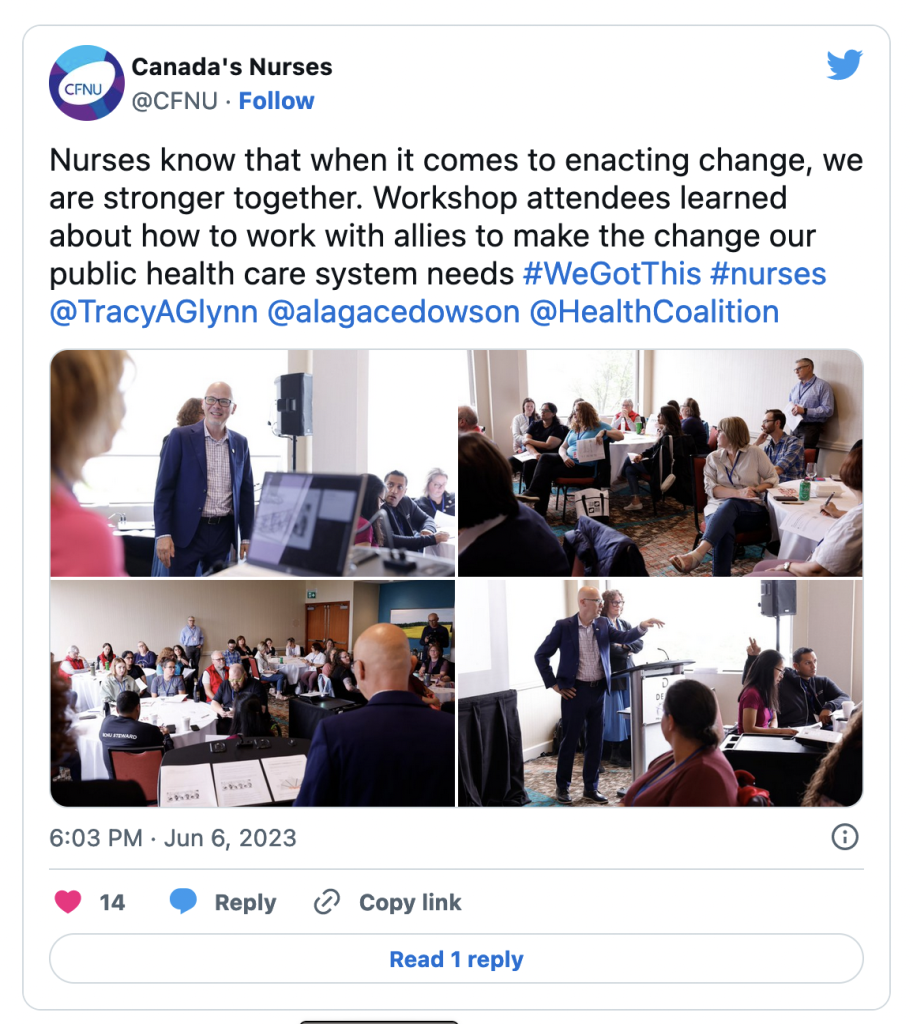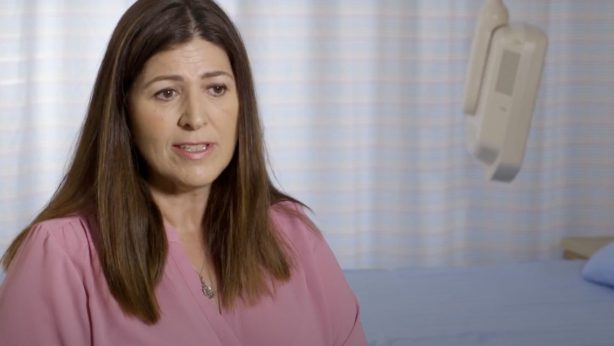Canadian Health Coalition workshops public health care advocacy with nurses
More than 1,000 nurses gathered in Charlottetown for the biennial Canadian Federation of Nurses Union (CFNU) convention last week.
Canadian Health Coalition staff delivered two three-hour workshops on protecting and advancing public health care to the nurses gathered at the convention.
Besides workshops, nurses listened to a roster of inspiring speakers and participated in a blanket exercise led by Alan Kakakaway and Rodger Ross that explored how colonization has affected Indigenous peoples on Turtle Island, now known as Canada, and what Indigenous peoples and allies can do to bring about positive change. The nurses also made a splash in the island’s capital with a march and a die-in that drew attention to the untenable working conditions of nurses.

“We are dying for safe hours of work,” exclaimed Pauline Worsfold, a nurse of 42 years, and chair of the Canadian Health Coalition.
Attendees at the Canadian Health Coalition workshop included nurses from across the country. Some work in long-term care, others are community/extra-mural nurses, others are nurse practitioners or ER nurses. Many are active in their unions, serving as presidents or in other roles with their union locals or provincial unions.
Participants were tasked with completing a personal political action plan to advance their public health care priority.
After the Canadian Health Coalition’s Steven Staples introduced the Canadian Health Coalition, its mandate, membership, and activities, the Coalition’s Tracy Glynn invited participants to take a short quiz to learn about the structure and funding of public health care, the five principles of the Canada Health Act, and the history of Medicare.
Participants were then asked to share perspectives on problems they see in health care. Then they were encouraged to propose solutions and come up with campaign goal for their personal political action plan.
Nurses told us the problems include accessibility of health care and medicine, privatization, staffing burn out, shortages and retention and agency nurses. They want accountability – that dollars set aside for health care actually go to health care, safer work environments and for health care to be adequately funded.
“We don’t want to talk about nurses that are burnt out. We know that,” Linda Silas, CFNU President, told CTV on June 8 during the convention. “We need to fix the workplace. As I often say, ‘nurses’ love nursing, but they hate their job,’ and it is killing them.”
Workshop participants then engaged in a power-mapping exercise to determine strategies and tactics that will allow them to achieve their goals. The ‘spectrum of allies’ tool was used to identify active allies, passive allies, neutrals, passive opponents and active opponents. They were asked to think about how neutrals and opponents could be moved to support their goals. Participants then identified their target or who they believe is the most influential person or constituency to support their goal.
When asked about allies and opponents, nurses said their unions and the Canadian Health Coalition and provincial health coalitions, are their strongest allies. They considered the media to waver along the ally-opponent spectrum. They considered big pharma, private insurance companies and anyone profiting from health care to be their opponents.
The Canadian Health Coalition’s Media director Anne Lagacé Dowson captivated the audience with her stories of being a reporter and media producer. She encouraged the nurses to tell their stories in creative ways that do not get them in trouble, but effectively share their opinions about what is happening in their workplaces.
Participants then engaged in a role-playing exercise with real-life scenarios such as finding oneself on a long elevator ride with the Health Minister or speaking before a large audience against a respected individual who has just promoted privatization. Participants said the exercise helped them to refine their arguments and boost their confidence.
The Canadian Health Coalition plans to take the workshop on the road. If your union or organization would like the coalition to deliver the workshop to your members, please contact the coalition.
Tracy Glynn is the National Director of Projects and Operations for the Canadian Health Coalition




